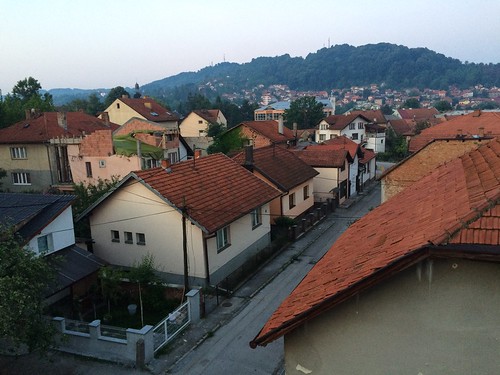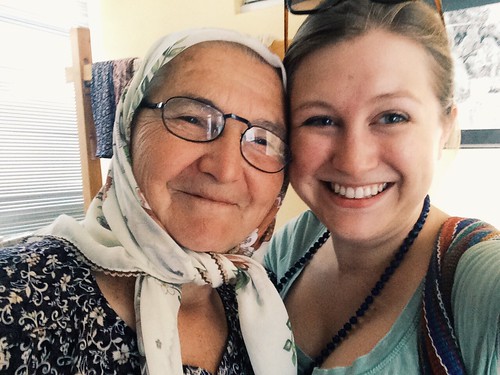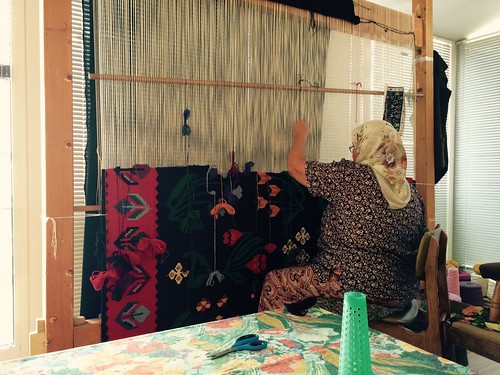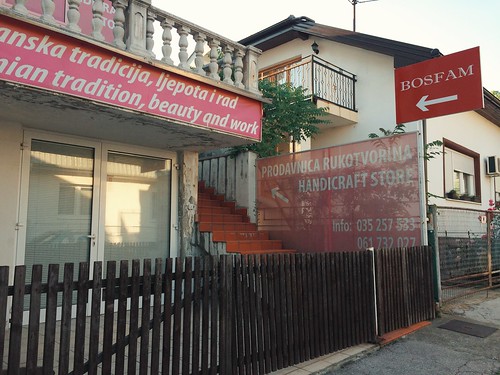Okay, so I’m assuming you’ve all seen the movie, Love Actually? If you have not, you’re missing out on one of the best R-rated, British, Christmas rom-coms of all time. And most importantly, this blog will make no sense to you. For those of you who only watch this movie at Christmas (which is understandable, but regrettable), let me refresh your memory.
Colin Firth’s character finds his wife is cheating on him and moves to a tiny cottage in France to work on his book in dejected solitude. (If you do not know who Colin Firth is, I cannot help you.) His house is cleaned daily by a beautiful Portuguese woman whom he drives home at the end of each day. She does not speak any English, nor does he speak any Portuguese. Nevertheless, they speak to each other without understanding each other and its funny and poignant and they fall in love.
With the women of BOSFAM, I am Colin Firth. I am not claiming to be as clever or handsome, but I speak to them in English with a couple of words of mispronounced Bosnian sprinkled in and ridiculous charades to mime what I’m trying to say and they laugh and respond and hug me. What they are saying? Usually, I do not know. However, I think we are in love.
Since arriving in Sarajevo and then settling in Tuzla just a few short days ago, I have fallen in love.

The view from my apartment at BOSFAM house in Tuzla.
There is something about this place that has an exceptional patience and tolerance for others and, most remarkably, a kindness and hospitality that has been unmatched in my travels. This shouldn’t have surprised me. Every person I’ve spoken to who has visited Bosnia speaks of three things: the amazing coffee, the beautiful scenery, and the friendliness of its people. However, as an American who has travelled throughout Europe, I have grown accustomed to a kind of barrier between myself and a city’s locals; it is just really difficult connecting with people when you can’t speak their language. But here, even when we can’t communicate through words, I feel a deep connection with these wonderful women.

Zifa did not hesitate for a second to take a selfie with me.
Meet Zifa. This woman is incredibly beautiful, inside and out. Every time I return to the house, I check the room with her loom to see if she is home and when she is, we always hug and she gives me a kiss (and usually offers me something to eat.) She speaks to me in Bosnian with a huge smile on her face and I respond in English, neither of us really knowing what the other is saying, just happy to see each other. I taught myself the word for husband (muž) and tried explaining that I was going upstairs to call him. She was so excited that I had learned this one little word and my desire to actually understand the things she says to me is pushing me to study my little Bosnian-English dictionary as much as I possibly can.

Zifa is one of BOSFAM’s most talented weavers.
Zifa, like the other women of BOSFAM, is a survivor. During the 1995 genocide, she fled from Srebrenica to Tuzla with her daughter and grandchild, where she was reunited with her husband. Tragically, Zifa and her family waited for her 25-year-old son to join them, but he never returned. In 2007, his remains were identified and reburied in Potacari.
I’ve heard Zifa’s story several times from past fellows and other women at BOSFAM, but I can’t process it. I struggle to see any trace of sadness in her shining face each day I see her. But I know it is there, especially as the anniversary of the genocide approaches and I fear the day that I will bear witness to this sadness.
And that is what amazes me about Bosnia. This legacy of violence, hatred, division, and loss from just twenty years ago is present in the monuments of the cities and the quilts of BOSFAM, but not in the hearts of its people. Every person I’ve met is generous and compassionate and open-minded. Even though I am certain they are still grieving, it has not hindered their desire to reach out to others.
So it is for this reason I have fallen in love. With Bosnia, with Tuzla, with BOSFAM, and with Zifa. There is evidently no tragedy too strong to wipe out the capacity for love.
So I will continue to teach myself Bosnian and I hope to be able to expresses these feelings and my deep admiration for these women, even if it is as broken as Colin Firth’s Portuguese in Love Actually. Language is not a barrier and love knows no bounds.
Posted By Sarah Reichenbach
Posted Jun 6th, 2015



166 Comments
Karen
June 8, 2015
Love the comparison to “Love Actually!”
Kathy
June 10, 2015
Sarah,
I can totally relate to the language barrier, but you are right Aurelia & Jamie embody perfectly such an experience. In your case it sounds as the women from BOSFAM appreciate your presence and efforts to communicate as much as you appreciate theirs. And how very true “no tragedy is too strong to wipe out the capacity for love” and as long as there is love there will be HOPE 🙂 Good Luck with everything!!
William
June 11, 2015
Sarah, Keep up the good works! Having spent 4 years in Tuzla as the Head of UNHCR’s regional office, I got to meet thousands of Bosnians living in 49 municipalities and hundreds of villages of NE BiH, including many survivors of massacres from the fighting between 1992-1995. I know BOSFAM to be a very good NGO, helping many people to gain a living in a society where the fighting has stopped, but the society, especially young people still are held back by the lack of political will to compromise. Visit the village of Cerska (along the route from Srebrenica to Tuzla) and say hello to my many friends in that beautiful village that has seen so much sorrow….
Annika
June 25, 2015
I think there is something incredible about human connection beyond barriers – whether it be language, culture, ethnicity, etc. – and the BOFAM women definitely exhibit this capacity for unconditional love, especially in their ability to rise past trauma to create such a beautiful organization! Love your “Love Actually” metaphor. Best of luck this summer!
Lauren Blommel
July 1, 2015
This is one of my favorite blog posts: so cute and well-written, and emphasizes the love and happiness in the area and a great enthusiasm for the human experience. We all connect in unique and special ways, and it’s wonderful to read about your experience in connecting with the women at BOSFAM. Keep it up with the fantastic blogging! 🙂
Mediha Salkic
October 13, 2015
Sarah, this is beautifully-written! As a native of Bosnia, I read this blog and am in awe of the way you have managed to encapsulate the love that lives within the Bosnian people and transcends cultural boundaries. It’s a land of wonder, truly.